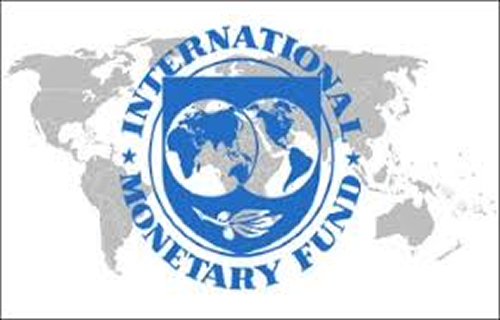This post has already been read 1994 times!
To review Nigeria’s growth prospect for 2021Calls for foreign exchange market reform
The International Monetary Fund (IMF), JP Morgan and the American Business Council (ABC) have recommended policy options that could aid economic recovery efforts in Nigeria.
According to the financial institutions, policy options for economic growth and recovery would border on increased pace of vaccination, domestic revenue mobilisation and foreign exchange reforms.
They added that the implementation of certain economic policies has become necessary due to rising inflation and unemployment in the country. The Mission Chief for Nigeria, IMF, Jesmin Rahman, noted that the upward review of Nigeria’s growth forecast was due to the recovery of oil prices and unexpected growth in the fourth quarter of 2020.At a webinar to present IMF’s IV on Nigeria organised by the American Business Council, Rahman, stated: “We projected GDP this year would grow by 1.5 per cent before we had the fourth-quarter data.
“However, based on more favourable Q4 data, it is likely that we will be revising our 2021 growth forecast in the next round of projection which will be out next month.”
Rahman did not put a figure on the 2021 growth but said the medium-term, growth rate could return to 2.5 per cent. She said the recovery is subject to downside risk in the middle of the pandemic, pointing out that the Federal Government has a target to vaccinate 40 per cent of the population this year and another 30 per cent next year.
She stated that there are challenges to meeting these targets, noting that the procurement of adequate vaccination for 70 per cent of the population is yet to be in place. She stated that the operational capacity and readiness of the vaccine providers to effectively execute the campaign is an issue while the operational cost could be a setback.
She advised that the policy priority for Nigeria is to boost domestic revenue mobilisation and executive exchange rate reforms. According to her, the impact of the COVID-19 pandemic has been harsh on the vulnerable.
She added that the prices of necessities have gone up with the latest February data showing that food inflation is above 20 per cent, while a significant number of the population are facing food shortages.
She also noted that the overall fiscal deficit, which has been on the rise for quite some time, has been estimated to increase to six per cent of the GDP.
She warned that investors’ sentiment remained very weak, adding that Foreign Direct Investments (FDIs) inflows have been very low as Nigeria has been relying on short-term portfolio inflows.
JP Morgan’s Chief Economist for sub-Saharan Africa (SSA) Ayomide Mejabi, said Nigeria might not get back to quick potential growth simply because a significant part of the labour force has been unable to recover, stating that a growth rate of two per cent this year is still quite low.
He said that while there is very limited scope to push the revenue mobilisation, the government needs to find a way to enhance tax collection as the nation would not gain more ground without reinvigorating the tax collection system.
“We think that the easiest way out would be foreign exchange reform, but we do not see that happening at any time soon,” he added. The Practice Head for Africa, Eurasia Group, Amaka Anku, stated that there is no demand for Naira because the country relies solely on the export of oil which is an international export dominated by dollars.
She added that the reason for the declining FDI is since most of the FDIs in the country are largely oil investments, even as she advised that Nigeria stimulates local production and produce for export to diversify the economy. She also added that the official processes for exporting out of Nigeria is extremely cumbersome, stating the need to incentivize exports.
“The government needs to create incentives for companies to export either by way of a tax credit. There needs to be an aggressive move to incentivize exports,” she said.
A Development Economist and Faculty member at the Lagos Business School (LBS), Bongo Adi, said Nigeria is back to the same economic challenges it experienced 34 years ago which brought about the Structural Adjustment Programme (SAP), blaming it on the federal government’s inconsistent policies.
He said there are so many disincentives hindering the growth of the private sector, advising the economic managers to prioritise development efforts on the nation’s manufacturing sector to drive economic growth.



